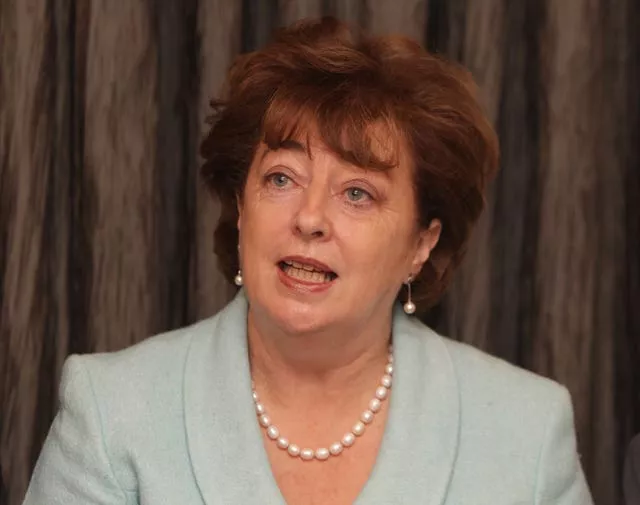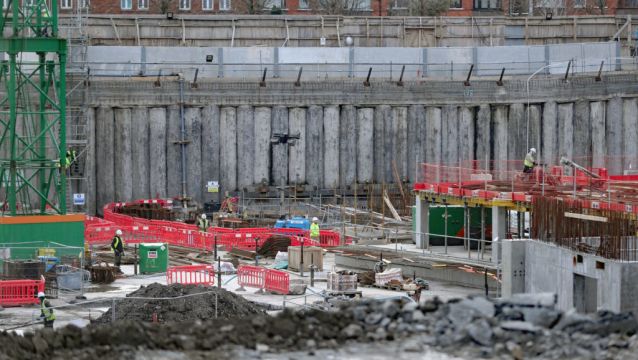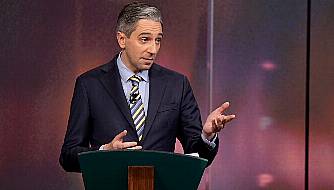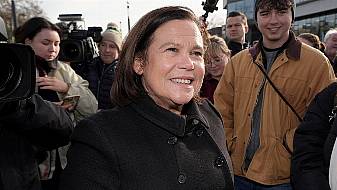The cost to build the National Children’s Hospital is estimated to increase by €51 million due to inflation, the Public Accounts Committee has heard.
This is an estimation of costs made during the years 2019, 2020, 2021, and the projected inflation costs for 2022.
David Gunning, chief officer at the National Paediatric Hospital Development Board (NPHDB) told the Public Accounts Committee (PAC) on Thursday that the contract underlines that the State is liable for any inflationary costs above 4 per cent.
“So for 2021, the payment is €17.89 million, that’s including VAT.
“The total inflation payments to date are roughly €21.16 million.”
Mr Gunning said the average tender price inflation that applied in 2021 was 10.24 per cent.
“I can give you a scenario that has been put together – if there’s €200 million of payments to the contractor in 2022, and if we assume that the forecast tender price inflation is 10 per cent, the amount including VAT that would be payable for 2022 would be €30.4 million … in that one scenario.”
Fianna Fáil TD Paul McAuliffe noted that additional inflation costs “could go as high as €100 million. This is a very significant risk to the overall cost of the project”.
Phelim Devine, project director at the NPHDB said the 4 per cent limit was included in the contract to attract companies to pitch for the tender due to the length of time the project would take to build.

“We determined that 4 per cent was about as much as the contractor could take a risk on.
“So we felt the 4 per cent was an appropriate figure to put in the contract and then anything above 4 per cent would be paid by the state.”
Mr Gunning agreed that the value of 81 per cent of the 1,314 claims made relates to the time extension for the hospital, but said it was still to be determined who is liable for the delays.
“So if the hospital had been completed on time, we wouldn’t have attracted a lot of these claims,” Social Democrat co-leader and Kildare North TD Catherine Murphy asked.
“Or you could put it that the reason the claim exists is because the project is in delay,” Mr Gunning said.
“I think it’s the same thing.”
Mr Gunning added: “Who is liable for the delay is the question? Who is paying for it? Is it the NCH, the state or the contractor, and that’s what has to be determined.”
Mr Gunning also added: “There is no way that the claims will amount to €585 million. That is simply not going to happen.”
At the beginning of the appearance, Ms Murphy warned of a “worrying trend” of engagement after the committee didn’t get the documentation or opening statements as requested by the “reasonable” deadline of June 10th – a month after they were requested.
“Not only was the information not provided within the timeframe, despite the secretary following up on a number of occasions, the board waited until June 10th to respond and to say that the two requests were more appropriate to the Department than flagging that in May or liaising with the Department.”
Mr Gunning noted Murphy’s comments.
“I assure you we will strive to meet the timing requirements of the PAC in future.”
The National Children’s Hospital is the largest current infrastructure development in the state.
The Board said it is aiming to complete the build as soon as possible, but that disruption caused by the Brexit deadlock, the Covid-19 pandemic and the war in Ukraine has slowed that timeline.
The overall cost of the project has risen from an estimated €800 million in 2014, to €983 million in 2017, to €1.4 billion as of December 2019.
In recent appearances before PAC both the Department of Health and the NPHDB have stated that the approved budget for the capital project remains at €1.4 billion, but the Department has conceded that it would be a reasonable assumption that costs would exceed the current budget.
The budgeted cost for equipping the new children’s hospital is €300 million, bringing the combined budgeted cost of the project to over €1.7 billion.
The original completion date in the tender document was August 2022. It’s now expected to be substantially completed by the end of January 2024.







